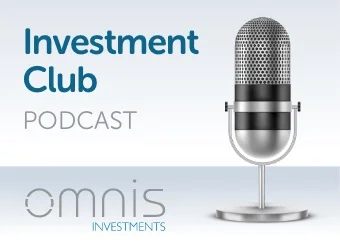Professional Mortgages: A Guide for Key Workers & Established Experts
Wednesday 20 August, 2025
For many individuals in respected professions, securing a mortgage that reflects both the stability of their career and the trust they’ve earned within their field can be a welcome reassurance.
Professional mortgages offer just that. Tailored specifically to meet the unique financial circumstances of those in certain vocations, these mortgage products are designed to provide flexibility, favourable terms, and an understanding approach from lenders who recognise the long-term security of such careers.
At Thomas Oliver, we believe that, with the right information and support, professionals can confidently take their next step on the property ladder, knowing they have options suited to their needs.
What Is a Professional Mortgage?
A professional mortgage is a bespoke lending option available to individuals working in industries where long-term career prospects, consistent earnings, and high levels of responsibility are the norm.
Lenders often view these applicants as lower risk due to the predictable nature of their income and their strong potential for progression. As a result, these mortgages often come with more flexible criteria, competitive interest rates, and in some cases, a willingness from lenders to consider applicants who are newly qualified or self-employed within their field.
These products are not a separate mortgage type in terms of structure, they can still be fixed-rate, variable, repayment or interest-only, but they are defined by the eligibility requirements and underwriting process that’s tailored specifically for people in recognised professions.
Who Qualifies for a Professional Mortgage?
In the UK, professional mortgages are typically extended to a wide range of vocations, grouped by sector. Each profession is assessed on the basis of its reliability, earning potential, and employment trends, and lenders will often have internal lists of roles they consider suitable.
Mortgages for medical professionals: These are among the most common applicants for these mortgages. This includes GPs, hospital doctors, dentists, pharmacists, nurses, optometrists, and veterinary surgeons. Given the demand for healthcare expertise and the structured nature of medical careers, many lenders are happy to consider applications even from junior doctors or those still undergoing specialist training.
Mortgages for legal professionals: This includes solicitors, barristers, and legal executives, who are often considered strong candidates for professional mortgages. Their high level of qualification and typically salaried positions within established firms give lenders confidence in their financial reliability.
Accountancy and Finance: This includes professions such as chartered accountants, actuaries, and investment bankers, which typically present with a high level of financial literacy and strong earning potential. This often makes them attractive to lenders who offer professional mortgages, especially where bonus income or self-employment would complicate standard applications.
Architects, surveyors, and civil engineers: Also fall within this category, due in part to the essential nature of their roles in property, infrastructure, and construction. Their professional qualifications and typically stable work streams, whether through private firms or public projects, are key factors in their eligibility.
Mortgages for key workers: These include teachers, social workers, police officers, firefighters, and members of the armed forces. While their earnings may be more modest compared to some other professions on this list, the stability and societal importance of their work means they are often considered favourably for professional mortgage products.
High-net-worth business executives: This could also include individuals with significant assets but non-standard income. These are more niche and often fall under the remit of private banking or bespoke underwriting but still carry the same principles of trust and recognition of financial standing.
Why Do Lenders Offer These Mortgages?
At the heart of the professional mortgage model is the lender’s confidence in the borrower’s career path. These mortgages are built on the understanding that professionals are less likely to experience prolonged periods of unemployment and are often in roles with steady salary progression.
For example, a junior doctor may not yet earn a high salary, but their future earnings are usually mapped out clearly, which enables lenders to be more flexible during affordability assessments.
Lenders also understand that many professionals have different financial rhythms, some may earn income through a combination of salary and bonuses, others might be self-employed or part of a limited company structure. Professional mortgages are more likely to take these nuances into account, offering underwriting that looks beyond the standard tick-box criteria.
Furthermore, many of these individuals carry significant student debt from years of study and training. A professional mortgage can often take this into consideration without penalising the applicant, recognising that such debt is an investment in future earning potential rather than a liability in the traditional sense.
What Criteria Are Used?
Each lender has its own set of criteria, but typically they will look at your current role, professional qualifications, expected income trajectory, and overall financial profile. Where an individual is newly qualified, lenders may consider future earning potential and job security in place of extensive income history.
For those in private practice or self-employed settings, common among solicitors, architects, and medical consultants, lenders may assess company accounts, professional registration, and contract history, rather than insisting on the usual two or three years of self-employed income evidence.
Many lenders are also more open to higher loan-to-income ratios for professionals. While the standard cap for most applicants is 4.5 times their income, professionals may be able to borrow 5 or even 5.5 times, depending on the lender and individual circumstances.
Romany Yousab, Mortgage & Protection Adviser in Nottingham said:
“Professional mortgages can open doors that might otherwise remain closed when assessed under standard lending rules. However, not all lenders offer them, and eligibility can vary from one provider to the next. That’s why it is crucial to speak with a mortgage adviser who understands both your profession and the nuances of the mortgage market. At Thomas, we work with a range of reputable lenders and always act in your best interests, offering FCA-compliant guidance that is clear, honest, and tailored to your personal circumstances”.
Whether you’re a junior doctor starting out, a solicitor moving into private practice, or a teacher looking to buy your family’s first home, we’re here to help you make confident, informed decisions about your mortgage options.
Professional mortgages aren’t just about getting a better deal, they’re about recognising your career and the dedication it takes to reach your professional status. And with the right advice, you can ensure that the financial side of your future is just as secure as the work you’ve put into building your career.
YOUR HOME MAY BE REPOSSESSED IF YOU DO NOT KEEP UP REPAYMENTS ON YOUR MORTGAGE.
Approved by The Openwork Partnership on 24/06/2025.






